A 'T' shaped object with dimension shown in the figure, is lying on a smooth floor. A force F is applied at the point P parallel to AB, such that the objects has only hte translational motion without rotation. Find the location of P with respect to C.
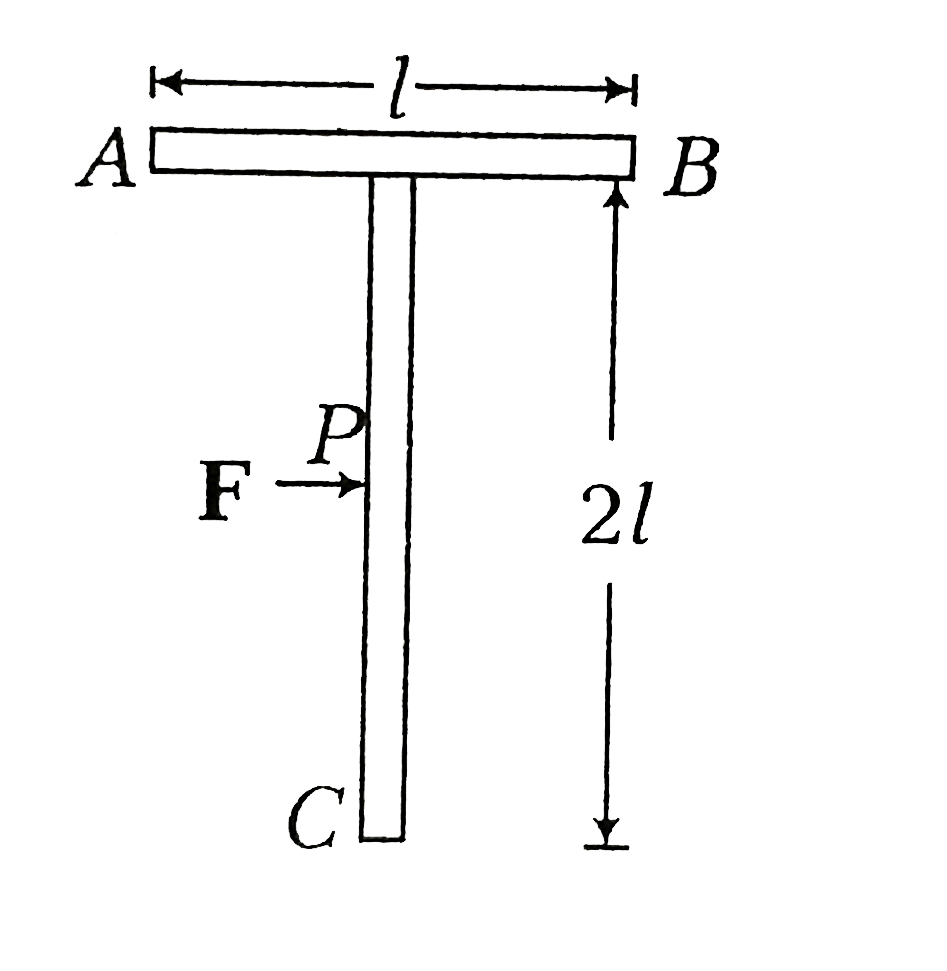
23l
32l
43l
l
The correct Answer is:C
The object will be have translation motion withour rotaion, when F is applied at CM of the system.
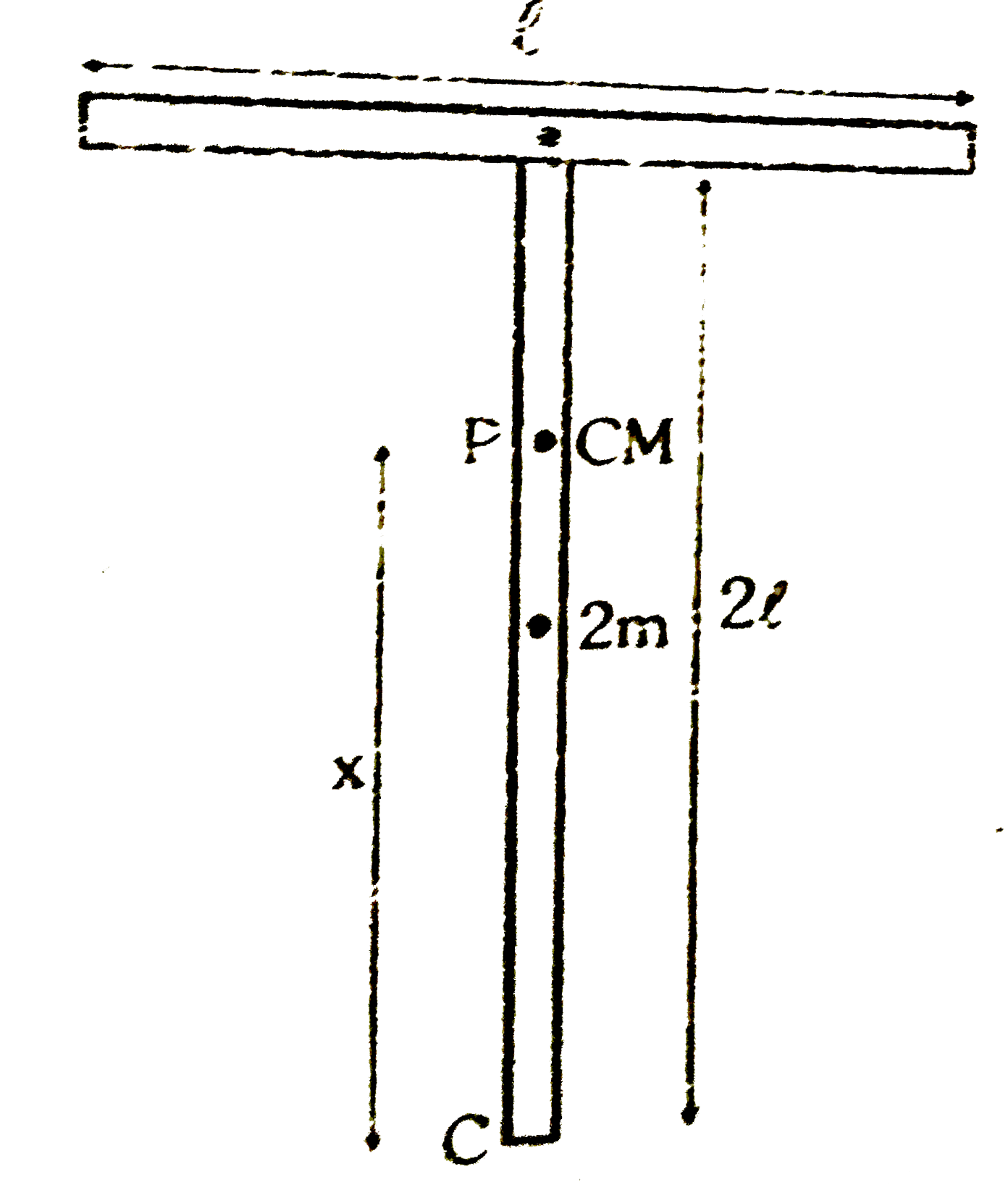
If P is the CM then m(2l−x)=2m(x−l)⇒x=4l3
Topper's Solved these Questions
- BOOK - ALLENCHAPTER - CENTRE OF MASSEXERCISE - EXERCISE-V B19videos
CENTRE OF MASS
- BOOK - ALLENCHAPTER - CENTRE OF MASSEXERCISE - EXERCISE-IV B14videos
CENTRE OF MASS
- BOOK - ALLENCHAPTER - BASIC MATHEMATICS USED IN PHYSICS &VECTORS EXERCISE - EXERCISE-IV ASSERTION & REASON11videos
BASIC MATHEMATICS USED IN PHYSICS &VECTORS
- BOOK - ALLENCHAPTER - ELASTICITY, SURFACE TENSION AND FLUID MECHANICSEXERCISE - Exercise 5 B (Integer Type Questions)3videos
ELASTICITY, SURFACE TENSION AND FLUID MECHANICS
Similar Questions
A 'T' shaped object with dimensions shown in the figure, is lying on a smooth floor. A force '→F' is applied at the point P parallel to AB, such that the object has only the translational motion without rotation. Find the location of P with respect C.
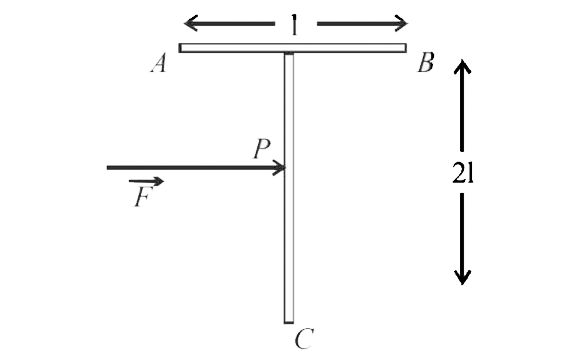 View Solution
View SolutionA 'T' shaped object with dimensions shown in the figure, is lying on a smooth floor. A force '→F' is applied at the point P parallel to AB, such that the object has only the translational motion without rotation. Find the location of P with respect C.
 View Solution
View SolutionAn inverted T-shaped object is placed on a horizontal floor as shown in Fig. A force F is applied on the system as shown in Fig. The value of x so that the system performs pure translational motion is
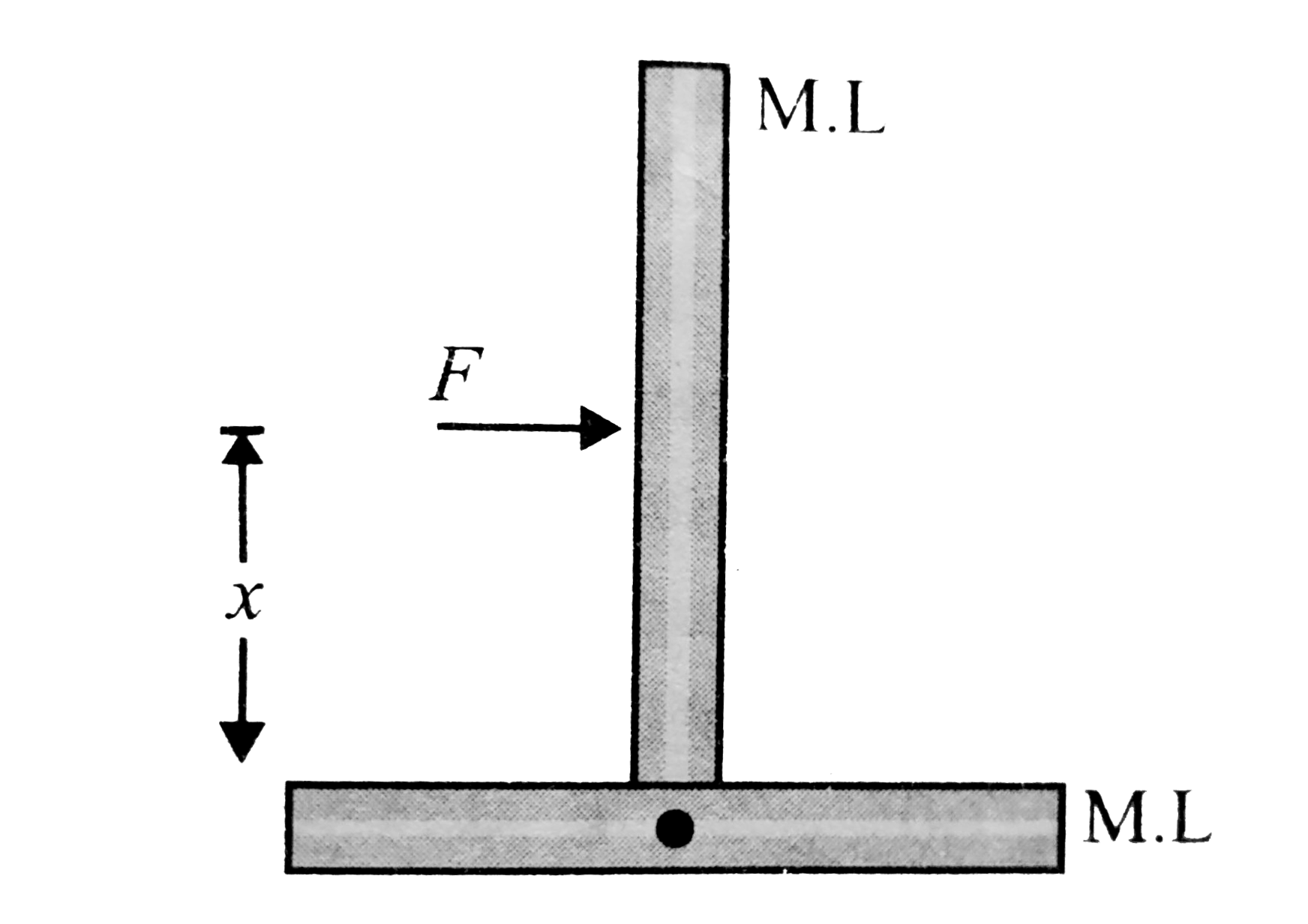 View Solution
View SolutionPortion AB of the wedge shown in figure is rough and BC is smooth. A solid cylinder rolld without slipping from A to B. Find the ratio of translational kinetic energy to rotational kinetic energy, when the cylinder reaches point C.
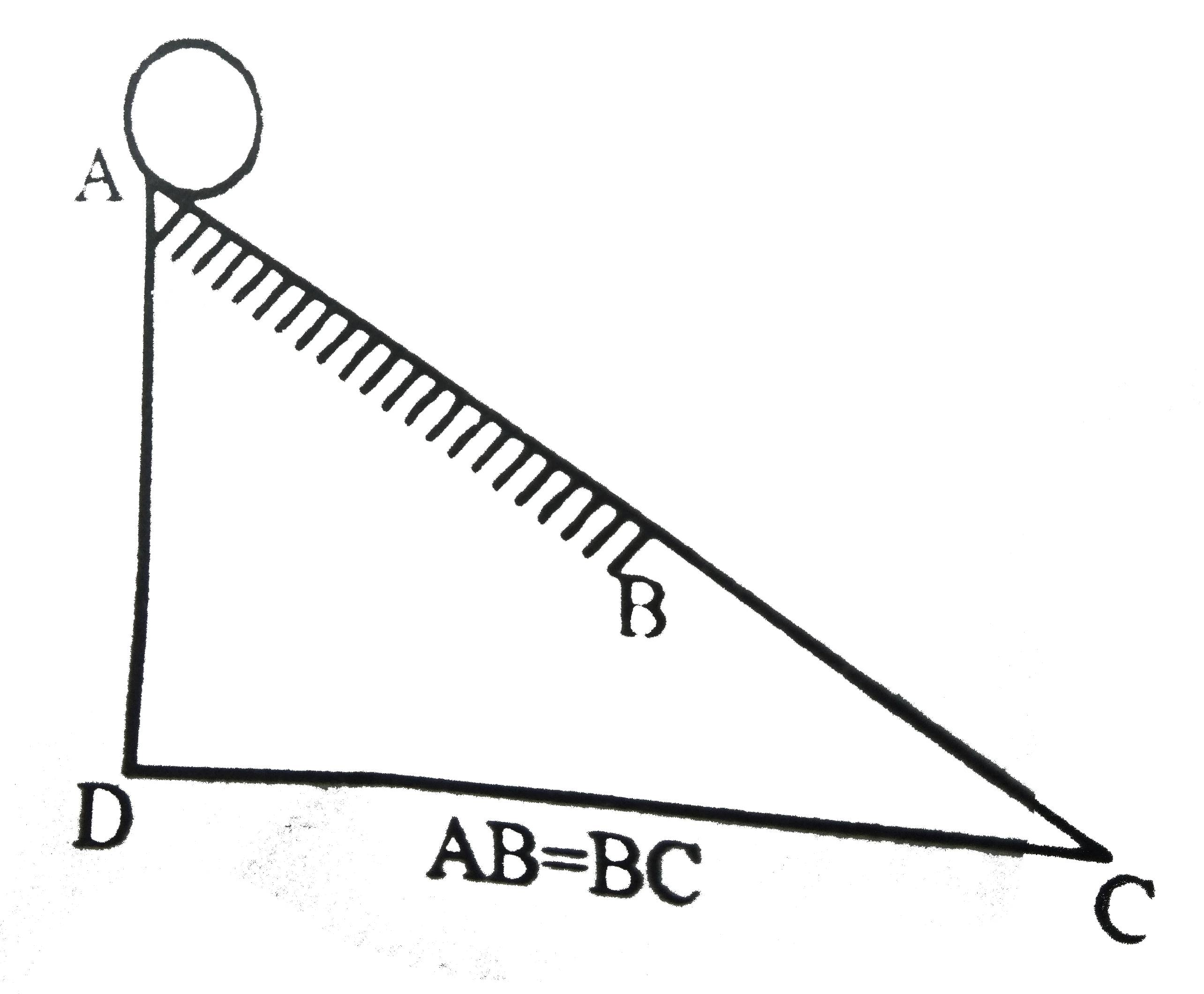 .View Solution
.View SolutionA rectangular block of mass M and height a is resting on a smooth level surface. A force F is applied to one corner as shown in Fig. At what point should a parallel force 3F be applied in order that the block shall undergo pure translational motion? Assume normal contact force a between the block and surface passes through the centre of gravity of the block.
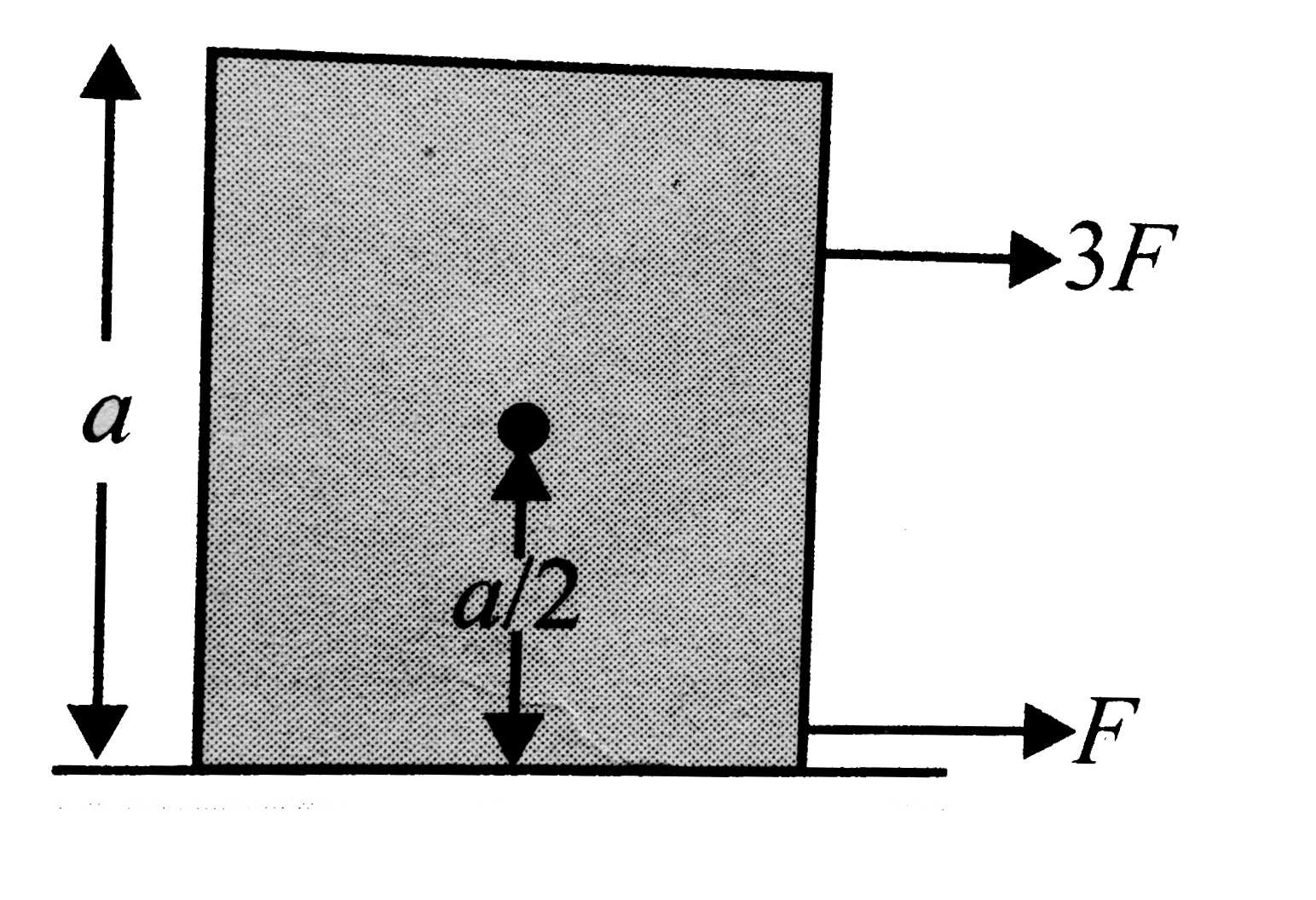 View Solution
View SolutionIn the arrangements shown in the figure there is friction only between the light string and the sharp spike at the point P. when the blocks are in motion, the tensions in the vertical and horizontal sections of the string are 4N and 3N respectively. The co-efficient of friction between the string and the spike is equal to
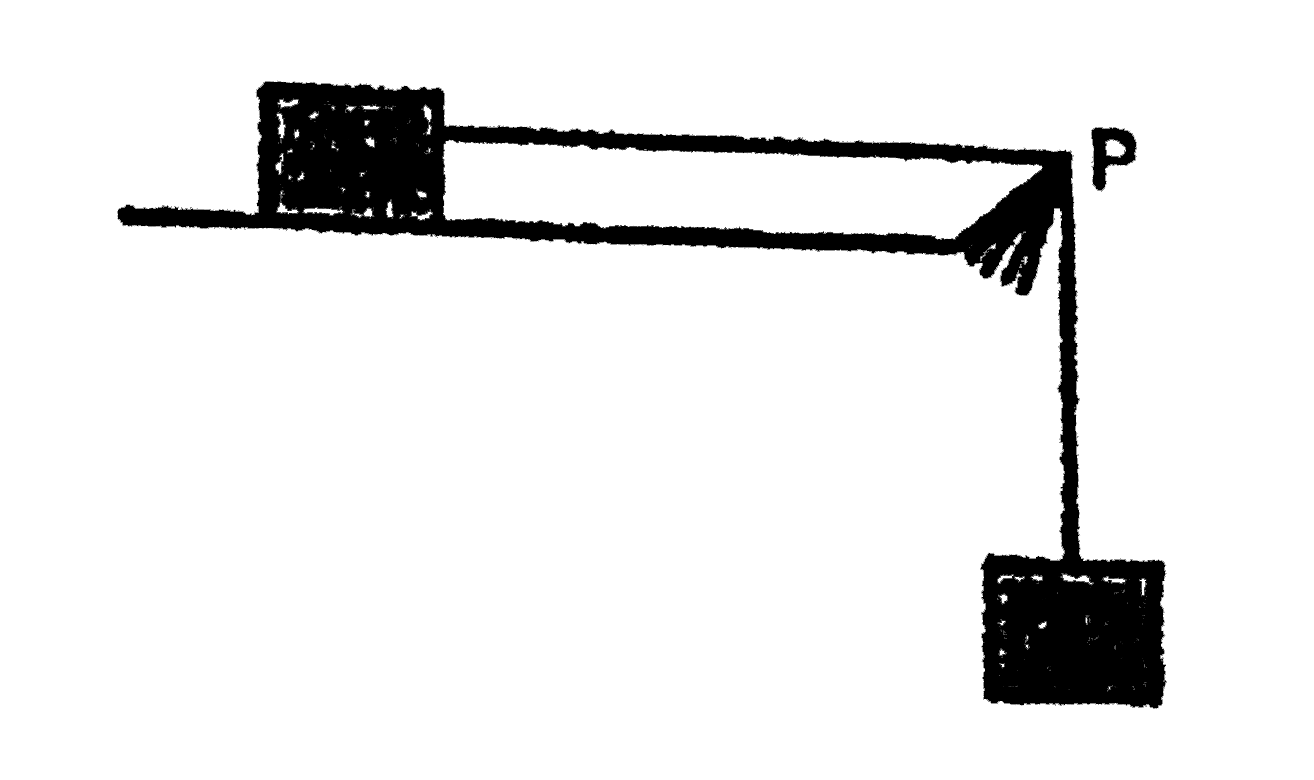 View Solution
View SolutionFor what value of x, the point P on the rod of length l=6m has zero acceleration if a force F is applied at the end of rod as shown.
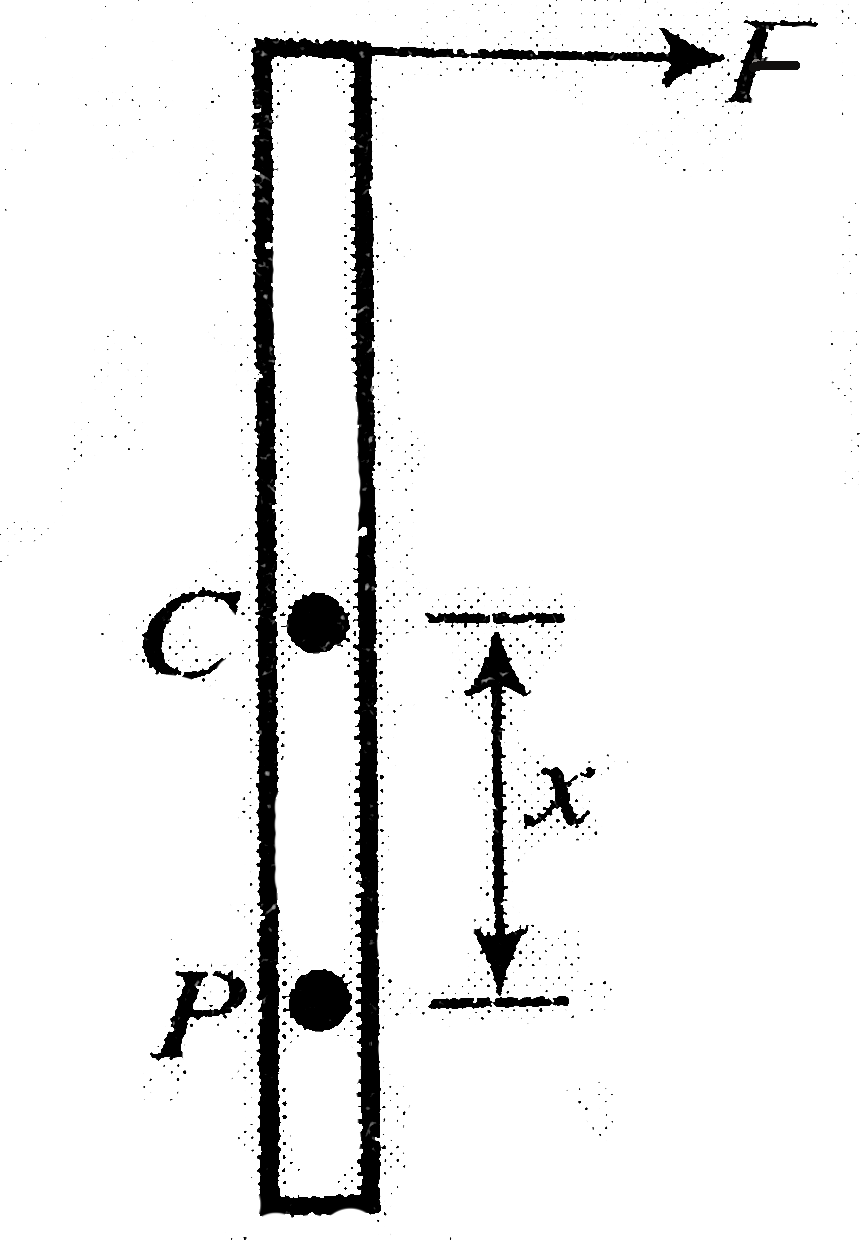 View Solution
View SolutionConsider a cylinder of mass M and radius R lying on a rough horizontal plane. It has a plank lying on its top as shown in the figure. A force F is applied on the plank such that the plank moves and causes the cylinder to roll. The plank always remains horizontal. There is no slipping at any point to contact.
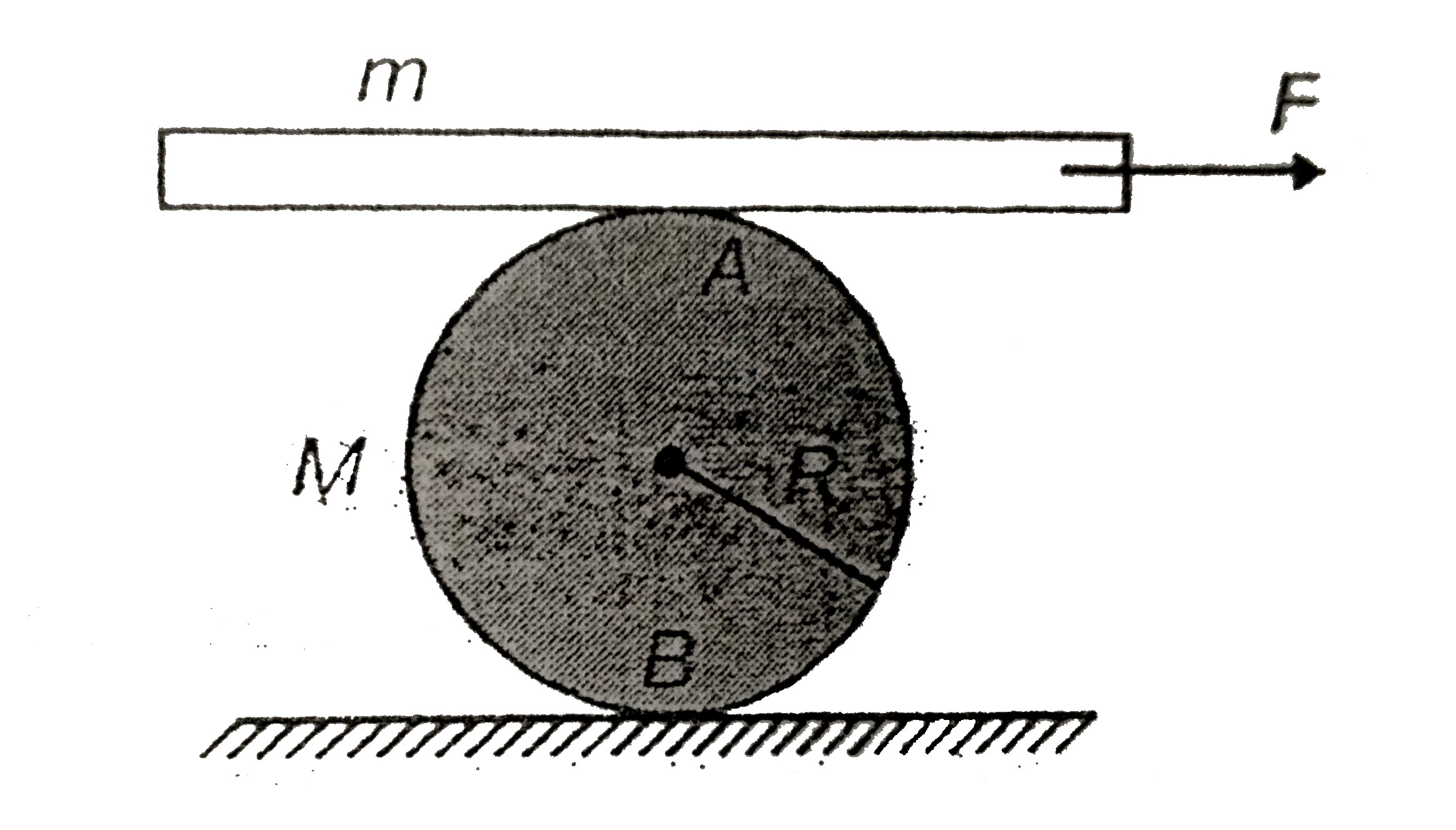
(a) what are the directions of the fricition forces acting at A and B on the plank and the cylinder ?
(b) Calculate the acceleration of the cylinder.
(c) Find the value of frictional force at A & B.View SolutionThree point masses m, 2m and m, connected with ideal spring (of spring constant k) and ideal string as shown in the figure, are placed on a smooth horizontal surface
At t=0, three constant forces F, 2F and 3F start acting on the point masses m, 2m and m respectively, as shown in figure. Find the maximum extension in the spring
 View Solution
View SolutionThe momentum p of an object varies with time (t) as shown in figure. The corresponding force (F)- time (t) graph is -
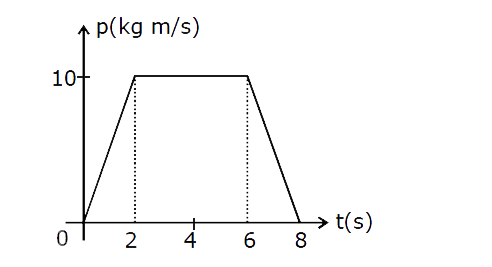 View Solution
View Solution

